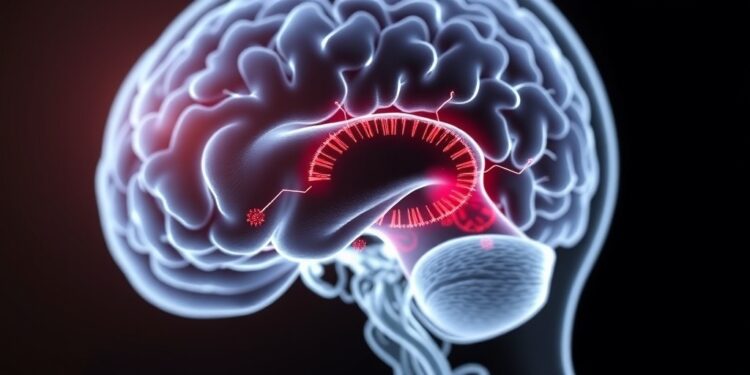
A groundbreaking study conducted by researchers at UCLA Health has unveiled a remarkable advancement in stroke rehabilitation, marking what is believed to be the first drug that can fully emulate the effects of physical rehabilitation for stroke patients, as evidenced by trials on model mice. Published in the esteemed journal Nature Communications, these findings are set to revolutionize the way stroke recovery is approached, as most patients historically struggle to regain full functionality post-stroke.
Stroke is recognized as the leading cause of long-term disability among adults, stemming from the persistent and often devastating effects that occur when the blood supply to the brain is interrupted. While standard physical rehabilitation has been the cornerstone of stroke recovery for decades, it has often yielded only modest results due to patients’ inability to maintain the intensity required for significant recovery. As such, the scarcity of pharmaceutical interventions in stroke recovery has created a distinct gap in effective treatment options for affected individuals.
The study led by Dr. S. Thomas Carmichael, a professor and chair of UCLA Neurology, aims to bridge this gap. Dr. Carmichael articulated a revolutionary vision: a medicine that provides stroke patients with the rehabilitation effects they would otherwise receive through rigorous physical therapy. Achieving this shift from physical rehabilitation to a more molecular medicine-based approach could significantly enhance recovery outcomes.
In a quest to understand the mechanisms that underpin the therapeutic effects of physical rehabilitation, Dr. Carmichael and his team embarked on research involving both stroke patients and laboratory mice models. Their investigations revealed that a stroke can lead to profound disconnections in brain networks, affecting areas far removed from the initial damage site. Such disruptions impede the firing of brain networks responsible for movement, thereby creating barriers to recovery and restoration of coordinated movement.
Critical to their findings was the identification of parvalbumin interneurons — a specific type of neuron crucial for generating gamma oscillations within the brain. These oscillations are essential for synchronizing neuronal networks to facilitate coordinated behaviors like movement and gait. The researchers discovered that a stroke disrupts these gamma oscillations, leading to a cascade of functional impairments. What is ground-breaking is that successful rehabilitation was shown to restore these gamma oscillations, reinstating lost neuronal connections and functionality, particularly in the case of laboratory mice.
Through rigorous experimentation, the UCLA team identified two candidate drugs capable of stimulating parvalbumin neurons to regenerate the gamma oscillations disrupted by strokes. Among these, DDL-920, a drug formulated in Dr. Varghese John’s lab at UCLA, showed particularly promising results. This compound not only elicited gamma oscillations post-stroke but also facilitated significant recovery in movement control within the mouse model.
This breakthrough may signify a paradigm shift in stroke therapy, steering clinical practices towards the incorporation of drug-based interventions that can complement or even replace traditional rehabilitation methods. However, the road ahead necessitates further investigation to thoroughly evaluate the safety and effectiveness of DDL-920 before potential human trials can commence.
The implications of this study extend beyond mere academic interest; they herald a potential revolution in clinical practice for stroke recovery. As researchers delve into the synthesis of drugs that can effectively mimic the benefits of rehabilitation, the hope is that these advancements will lead to more effective treatment plans for stroke survivors, allowing them to reclaim a greater degree of functionality and independence.
Continued exploration of the complexities of brain recovery and rehabilitation is pivotal. As this research unfolds, the focus remains on the molecular mechanisms that can be harnessed for therapeutic purposes. Striving to connect neurobiological insights with practical applications in patient care is central to advancing our understanding of stroke recovery.
In summary, the groundbreaking findings from UCLA Health underscore the necessity and potential for drug-related interventions in the realm of stroke rehabilitation. By tapping into the intricate interactions within brain networks and identifying pharmaceutical agents capable of reviving these critical functions, researchers are paving the way toward a future where stroke recovery may not only be more achievable but also more effective than previously imagined. With ongoing studies, the medical field may soon witness a significant transformation in how stroke-related disabilities are approached.
Subject of Research:
Article Title:
News Publication Date:
Web References:
References:
Image Credits:
Keywords:
Tags: advancements in stroke rehabilitationbrain repair drug for strokeDr. S. Thomas Carmichael researcheffects of physical rehabilitation on strokeimproving stroke patient outcomesinnovative treatments for stroke patientslong-term disability and strokeNature Communications stroke studypharmaceutical interventions for stroke recoveryrehabilitation effects of new stroke drugstroke recovery challenges and solutionsUCLA stroke rehabilitation breakthrough





